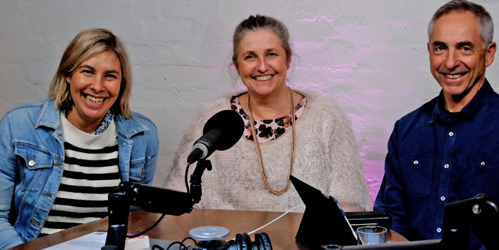Dementia In Practice
Dementia causes a progressive deterioration in a number of brain functions. People living with dementia will gradually lose their ability to perform day-to-day tasks. Some people will experience hallucinations or changes in their behaviour. In end-stage dementia, there will often be a physical deterioration with loss of ability to speak, move and eat. It is this physical decline that makes dementia a terminal illness.
Dementia is the leading cause of death for women in Australia and the second leading cause of death overall. It is the leading cause of disability for people over the age of 65. Dementia is more prevalent and occurs at younger ages amongst ATSI populations (Australian Institute of Health and Welfare, 2023).
Services for people living with dementia are very limited in rural and remote Australia. This impacts on both the diagnostic process as well as management and support once the diagnosis is made (Australian Institute of Health and Welfare, 2023).
Research shows that GPs often lack confidence in the diagnosis and management of dementia in primary care. Specific education about dementia during medical training is very limited (Mason, et al., 2020). Furthermore, there is an imbalance between demand (prevalent conditions with limited resources in rural and remote Australia) and supply (lack of formal training for health professionals in the diagnosis and management of dementia).
GPs and medical educators, Stephanie Daly, Marita Long and Hilton Koppe, have been working with Dementia Training Australia (DTA) to produce education resources for GPs and practice nurses to broaden their knowledge and confidence in caring for people living with dementia.

DTA’s GP education team have produced a podcast, Dementia In Practice, as a way of further sharing important information about dementia.
“We wanted to create something that would speak to listeners' hearts as well as their minds. A podcast is the perfect medium for this. We have interviewed people living with dementia, their carers as well as experts in the field. While the podcast was originally designed for health professionals, anyone whose life has been touched by dementia will find something of interest.”
Dementia In Practice can be found wherever you get your podcasts. Episodes are just 30 minutes and of a conversational nature.
For live online learning on the topic of dementia, join us for a 3 part webinar series that offers a practical approach to improve your knowledge, skills and confidence in the recognition, diagnosis and management of dementia in general practice.
References
Australian Institute of Health and Welfare (2023) Dementia in Australia: Summary report 2022, catalogue number DEM 6, AIHW, Australian Government.
Mason, R., Doherty, K., Eccleston, C., Winbolt, M., Long, M., & Robinson, A. (2020). Effect of a dementia education intervention on the confidence and attitudes of general practitioners in Australia: a pretest post-test study. BMJ open, 10(1), e033218.

Dementia Training Australia (DTA) is a consortium funded by the Australian Government to provide nationwide education and training on the care of people living with dementia.
Become a member and get unlimited access to 100s of hours of premium education.
Learn moreGenetic testing in general practice: Dr. Alan Ma explains which tests GPs can order, when to refer, and how the PRECISE portal supports confident testing and referral decisions.
GP Dr Kate Annear and Clinical Psychologist A/Prof Aliza Werner-Seidler discuss practical strategies for engaging young people, conducting psychosocial assessments, and using lifestyle, social, psychological and digital interventions to support mild to moderate depression and anxiety in young people.
Explore the PRECISE project and how genomics is shaping general practice, with insights on reproductive screening, general genetic testing, and practical tools to support GPs in everyday care.



